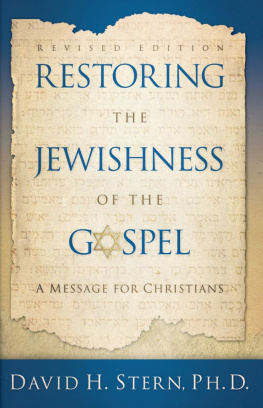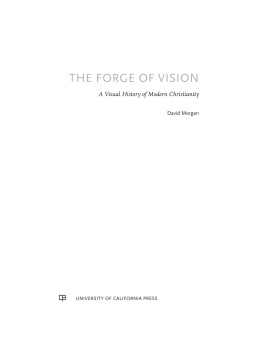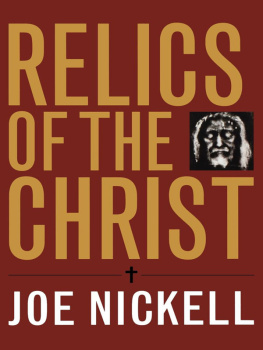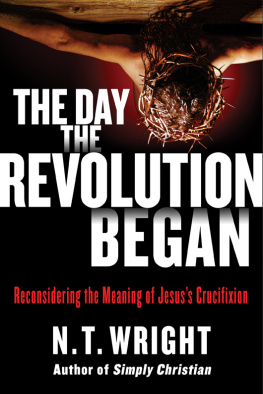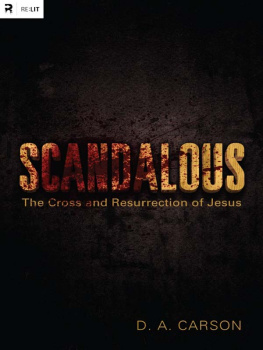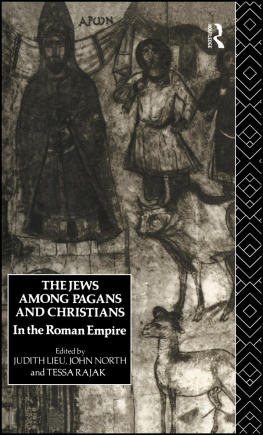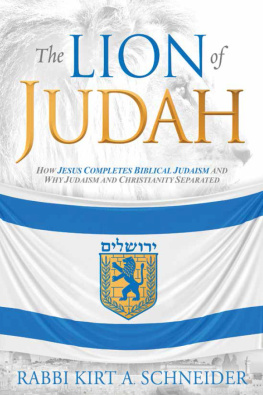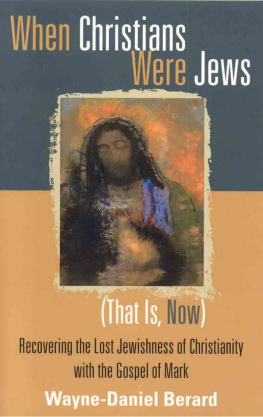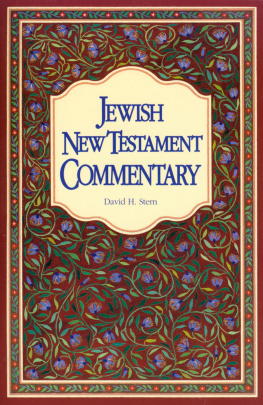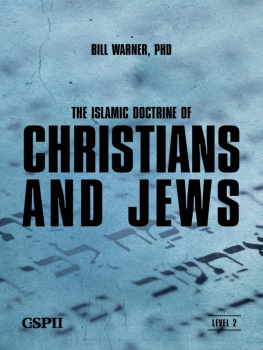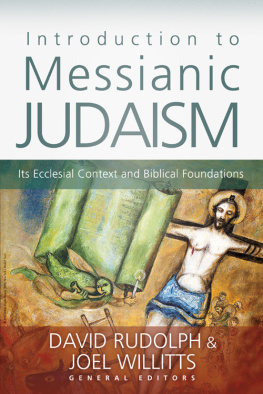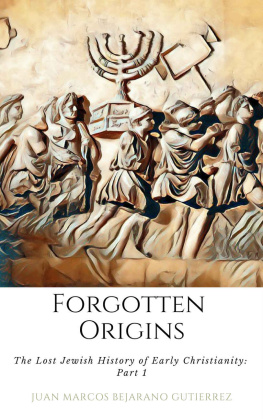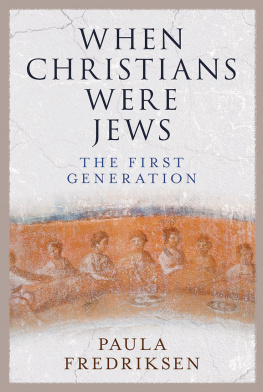Copyright 1988, 1990, 2009 by David H. Stern
All rights reserved. No part of this publication may be reproduced, stored in a retrieval system, or transmitted in any form or by any means without prior written permission of the publisher, except for brief reviews in magazines, or as quotations in another work when full attribution is given.
Unless otherwise noted, Scripture quotations are taken from:
Complete Jewish Bible 1998 by David H. Stern,
Published by Jewish New Testament Publications, Inc.
Cover Design by
Josh Huhn, Design Point, Inc
Layout Design by
Valerie Levy, Drawing Board Studios
12 11 10 09 4 3 2 1
ISBN 978-1-936716-18-0
Library of Congress Control Number: 2009924173
Lederer Books
A division of
Messianic Jewish Publishers
6120 Day Long Lane
Clarksville, MD 21029
Distributed by
Messianic Jewish Resources International
Order line: (800) 410-7367
www.messianicjewish.net
CONTENTS
Three Theologies:
Covenant, Dispensational and Olive Tree |
Romans 10:4
Did The Messiah End The Law? |
Galatians 3:10-13
Redeemed From The Curse of The Law? |
Hebrews 8:6
The New Covenant Has Been Given As Torah |
Purposeful Neglect, Justified
by History, is Antisemitic |
Purposeful Neglect, Justified
by Theology, is Antisemitic |
Romans 1:16
The Gospel is For the Jew Especially |
INTRODUCTION
The truth, the whole truth, and nothing but the truth. The Gospel which the Church preaches, the Gospel of Gods grace to individuals, expressed so perfectly in the first eight chapters of Romans and sometimes epitomized in four or five spiritual laws, is the truth, and it is nothing but the truth. But it is not the whole truth. The whole truth requires restoring the Jewishness of the Gospel.
This book brings one simple message, namely, that unless the Church does everything in her power to restore that Jewishness, she lacks a key component of the Gospel. In consequence she cannot fulfill the Great Commission properly, and the Jewish people cannot be the right kind of light to the nations. Rather than define what Jewishness means, I will let the whole book, in the process of presenting its message, convey the content and flavor of what it is that needs to be restored.
When the Church proclaims a Gospel without its Jewishness restored, she is at best failing to proclaim the whole counsel of God (Acts 20:27). At worst she may be communicating what Paul called another Gospel (Galatians 1:6-9). Moreover, not only Jews suffer from this off-target preaching Gentiles suffer too. Therefore I believe I am focussing on an extremely serious problem which has not received from Christians the attention it deserves.
In speaking of restoring the Jewishness of the Gospel I assume that my readers will agree to the following three points, which are not themselves part of this restored Jewishness but are is un-Christian, and (3) refusing or neglecting to evangelize Jews is antisemitic. We will review these propositions in Chapter III, closing with an examination of what is meant by the phrase in Romans 1:16, that the Gospel is the power of salvation to the Jew first.
The first two chapters present the main idea of the book. Chapter I compares restoring the Jewishness of the Gospel with the alternative of contextualizing it and concludes that the latter is misdirected. Chapter II is the books center of gravity, a discussion of what gets changed when Jewishness is restored to the Gospel.
Finally, Chapter IV surveys the blessings which will flow from restoring the Jewishness of the Gospel. At the end is a glossary of all Hebrew words and names used.
This little book is written primarily for non-Jewish Christians and for Jewish believers in Yeshua [Jesus] who have not thought much about how Jewish their faith is. All the material in it appears (with minor modifications) in a longer book, Messianic Judaism: A Modern Movement with an Ancient Past
As for those, both Jewish and non-Jewish, who do not believe in Yeshua, it is not a purpose of the present book to convince them otherwise. There is no shortage of literature aimed at persuading people to believe in him. But this book assumes, without supplying proofs, that Yeshua is indeed Israels Messiah, and that the New Testament and the Tanakh (Old Testament) constitute Gods word to humanity.
It has been pointed out to me that there are Christians who experience this book as promoting the Judaizing heresy which Paul condemns in the book of Galatians. But Judaizing does not mean encouraging New Testament believers to investigate the Jewishness of their faith. Rather, it means one or a combination of the following three things: (1) insisting that Gentiles cannot be saved by faith in Yeshua the Messiah unless they convert to Judaism, (2) requiring saved Gentiles to follow Jewish cultural practices, and/or (3) legalism, i.e., requiring Gentiles to obey a perverted version of the Torah in which Gods Law is seen as a set of rules unrelated to faith. Neither I nor the vast majority of Messianic Jews are Judaizers. I think that if this book is read in the light of what Judaizing really signifies, any fair reader should be convinced.
David H. Stern
January 2009
| CONTEXTUALIZATION VERSUS RESTORATION |
| A. | CHRISTIANITY AND CULTURE |
Yeshuas Great Commission to the Church was to make disciples from every nation. But as soon as the early Messianic Jews began reaching out to Gentiles, it was necessary to separate the Gospel from its cultural context, so that its essential message would not be encumbered with cultural baggage unnecessary for salvation.
Learning that the New Covenant did not require Gentiles to become Jews in order to be saved was a traumatic process for the Jewish believers in Yeshua [Jesus]. It began with Peters vision and Corneliuss coming to faith. But it was Paul, Yeshuas emissary [apostle] to the Gentiles, who worked out many of the details. Thus, he was present at the Jerusalem Council when James]announced the decision that Gentiles would not have to get circumcised and obey the Torah [the Law] as it had developed within traditional Judaism. Instead, the only entrance requirement for them to be fully accepted as brothers in the Lord was obedience to the four mitzvot [commandments] outlined in Acts 15:20.
Later Paul enunciated even more clearly the extent to which he was willing to go in order to win peopleanyone, Jewish or Gentile to the Lord. He wrote, in 1 Corinthians 9:19-22:
For although I am free from all men, I have enslaved myself to all, that I might win the more. To the Jews I became as a Jew, in order to win Jews; to those under law I became as one under lawthough not being myself under law in order to win those under law. To those apart from law I became as one apart from lawnot being myself apart from law toward God but en-lawed to the Messiahin order to win those apart from law. To the weak I became weak, in order to win the weak. I have become all things to all men, that I might by all means save some.
In quoting this text I am compelled, because of criticisms commonly made, to note that in becoming all things to all men Paul was not presenting himself as a chameleon or a hypocrite. Rather, in saying he became like others he meant that he put himself in their position, empathized with them, tried to understand their mindset, paid attention to where they were coming from and where they were at. What motivated him was his desire to win the lost. He could have been lazy, he could have demanded that others adapt themselves to his culture rather than he empathize with theirs. But Gods call on his life constrained him to go the extra mile, indeed to enslave himself to the needs of others.
Next page
